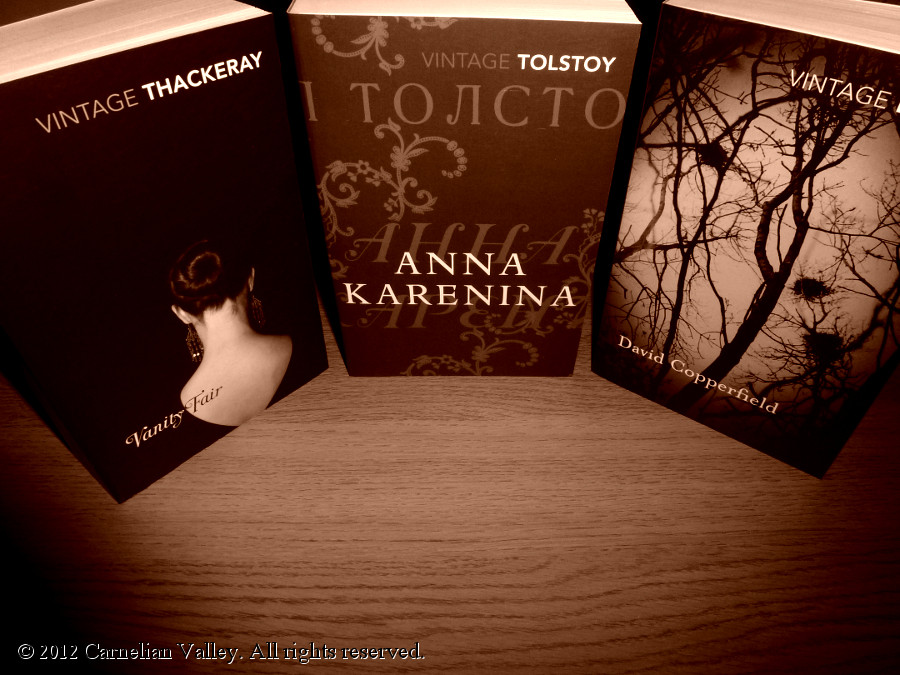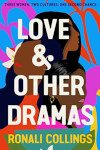Who’s To Blame If We Dislike A Book And/Or It Fails To Make An Impact)?
Posted 15th December 2014
Category: Chit-Chat Genres: N/A
2 Comments

A while back, Maria said something in her comment on my post about finishing books you’re not enjoying that got me thinking. It was the following that I picked up on: “I think reviewing and saying I didn’t finish would make it look like it was the book’s fault while I usually assume that I was not in the right mood or I’m not in the book’s primary audience.”
I started thinking about to what we could – ‘should’ is too strong a word – attribute the lack of an impact a book has on us as individuals. I’ve used the word ‘blame’, but only so that my meaning is obvious. There isn’t anyone to blame as such because the thoughts, backgrounds, and reading contexts change per reader.
I want to consider target audience. If we (you or I) pick up a book and we’re not the target audience, and most certainly if we know we’re not the target audience, it could be argued that it’s more our fault than anyone else’s if we dislike it. We chose to read it. However there are some elements of books that tend to unite people whether or not they’re the target audience, so in that respect it’s more difficult to say it’s the ‘fault’ of the reader.
But, where elements are concerned (let’s use the love triangle as our example), we can’t exactly say it’s the author either. Yes, an author may choose to include a love triangle, but if that is what sells or is what the publisher is looking for, you can understand why they might have chosen to include it. It may indeed be the case that self-publishing means writers can now truly write what they want to write but we’re not quite ‘there’ yet overall.
Questions can be asked – should we have to be the target audience in order to read the book, to appreciate it? What about expanding horizons? What about reviewers and readers who are new to the genre and are reading it to analyse or dip their toe into the water and see if they like it?
Being new to a genre, trying something different, you’re possibly not the target audience or at least you’re not yet the target audience. There are books that don’t require prior knowledge but most assume you’re familiar with and like the genre. I know I was not and likely never will be the target audience for inspirational romance, but I’ve read and reviewed a couple of them. It could be said I’m to blame for choosing to read them; the background I brought to my reviews somewhat gelled with my little knowledge and hesitation (writing as objectively as possible is something else). I liked reading them, I liked gaining knowledge about the genre. But I was not the target audience.
Where reviews and general conversation are concerned, readers only ever read books targeted to them, the context and angles for discussion wouldn’t be as varied as they are. A reader may read a book about a historical period they aren’t really interested in and/or knowledgeable about, but sometimes those reviews and conversations contain points that readers who do know a lot about the subject might have missed. It’s the usefulness of the outsider opinion.
I think it’s important to acknowledge when you’re not the target (when it’s obvious to you) but it’d be impossible to suggest, for good, a fault one way or the other.
What, if any, responsibility does an author have? I think it would be unfair to suggest an author always (always, always) take the reader into account. It’s important for the author to be creative, to experiment and to be able to use the idea, ‘write the book you want to read’. (Of course aligning themselves with this thought could match what a reader wants to read.) If you’re not the target, there’s little the author can do; but clarity, fun, and the story, are all down to the author.
To think of everyone would limit an author, that they think of their audience is best.
I think that if anyway, the answer is another question. ‘What’. ‘What’ is to blame if we dislike a book? Answer: difference, individuality. And that’s the problem with the word ‘blame’. It isn’t blame because it’s good to be different.
What do you think about this subject?
December 15, 2014, 1:08 pm
As a teacher of literature, I always told students it was their responsibility to become more of the reader a book demands. Learn some of the history, or pick out one story and think about what emotion it invokes (this works for Joyce). Find a way to enjoy the classics, because the reason they are is that they can appeal to such a wide range of people.
2 Comments
Comments closed























December 15, 2014, 9:19 am
Interesting post, Charlie. Interesting to also see those three chunkster-ish classics in the photo :) Did you have a problem with all of them?
I have felt sometimes the way you do when reading a book – it is acclaimed but it doesn’t do much for me. For example, Joseph Conrad’s ‘Heart of Darkness’ is in most top-100 lists and is recommended by most writers and critics, but I didn’t like it that much. I don’t think it is Conrad’s finest work either. I also read James Joyce’s ‘The Portrait of the Artist as a Young Man.’ It was interesting, but it was not as amazing as everyone made it out to be. I might, of course, be in the minority with respect to my feelings on these two books. However, my point of view on this is a little bit old-fashioned. I think if a writer starts worrying about a target audience while writing a book, and keeps finetuning a book for the target audience, I feel that the book loses something in the process. I know this is how most books are written these days – YA writers write books which they think young adults like, fantasy writers write books which they think fantasy readers like, and writers of romantic suspense novels write books which they think their target audience likes. But I still feel that focussing on the target audience takes away something from the beauty of the book. Recently the German writer Judith Hermann published her newest novel. She had tried to tailor it for an international audience and so it was unclear in the story where the events happened and what country the characters belonged to. The only thing it did was put off the German audience and critics and it didn’t gell well with the international audience either. She was trying to write for a target audience, but it didn’t seem to have worked.